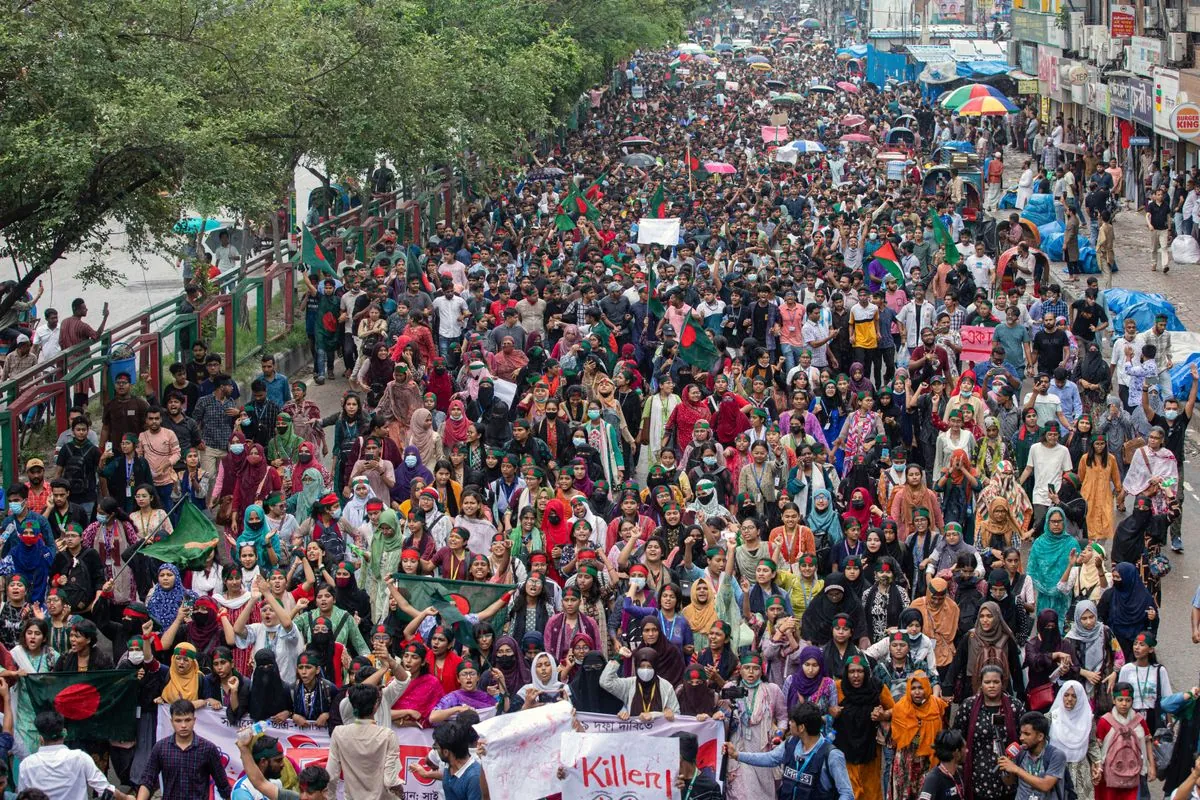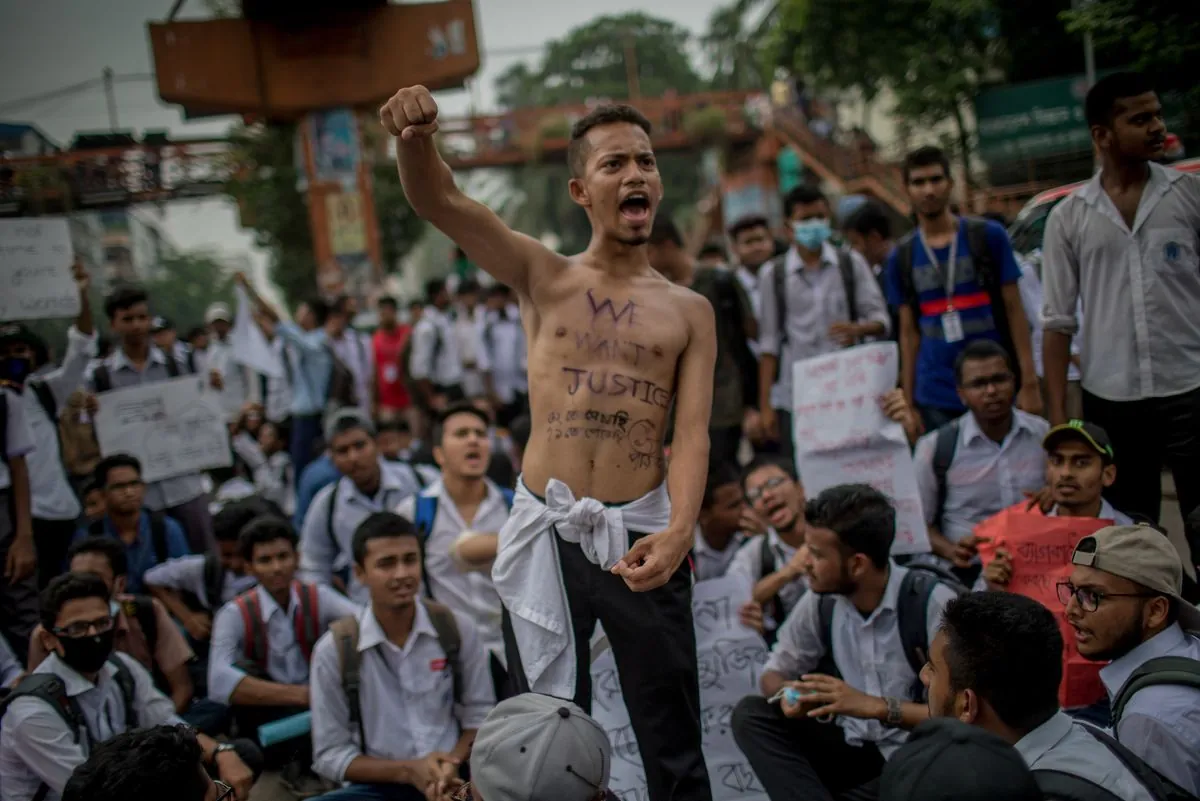Bangladesh's Top Officials Resign Amid Escalating Student Protests
Bangladesh's chief justice and central bank governor resign as student protests widen. Prime Minister Sheikh Hasina seeks refuge in New Delhi following a deadly uprising that ended her 15-year rule.

In a significant turn of events, Bangladesh is witnessing the resignation of top officials amidst escalating student protests. The demonstrations, which began as a challenge to Prime Minister Sheikh Hasina's government, have now expanded to target other high-ranking appointees from her administration.
The country's chief justice, Obaidul Hassan, has stepped down from his position following threats from student protesters. Concurrently, the governor of Bangladesh Bank, Abdur Rouf Talukder, has tendered his resignation, although it remains unaccepted due to the critical nature of his role in the nation's financial system.
These developments come in the wake of an uprising that has shaken the foundations of Bangladesh's political landscape. The unrest, which erupted on August 5, 2024, has resulted in approximately 300 fatalities, with a significant number of victims being students. This turmoil has effectively brought an end to Sheikh Hasina's uninterrupted 15-year tenure as the leader of this South Asian nation of 170 million people.

Bangladesh, the world's eighth most populous country, has been grappling with political instability throughout its history since gaining independence from Pakistan in 1971. The recent events mark another chapter in this tumultuous journey, highlighting the ongoing challenges faced by the nation's leadership.
The protests have not only targeted the highest echelons of power but have also led to the forced resignation of four deputy governors of the central bank. These officials faced accusations of corruption from a group of 300 to 400 bank employees, further underscoring the widespread discontent within various sectors of the government.
"We demand accountability and transparency from our leaders. The resignations are just the beginning. We will continue our fight against corruption and injustice in our beloved Bangladesh."
As the situation unfolds, Prime Minister Sheikh Hasina, daughter of Bangladesh's founding father Sheikh Mujibur Rahman, has sought refuge in New Delhi since August 5. This move comes as a stark contrast to her previous position of power, reflecting the rapid shift in the country's political dynamics.
Despite these challenges, it's important to note that Bangladesh has made significant strides in various areas over the years. The country has experienced robust economic growth, with an average GDP growth rate of 6-7% annually. Its garment industry, accounting for 80% of exports, has been a key driver of this economic progress.
Moreover, Bangladesh has achieved notable improvements in poverty reduction and health indicators. The nation has also been at the forefront of women's empowerment, with women holding key political positions. However, the current unrest underscores the persistent issues of corruption and political instability that continue to plague the country.
As Bangladesh navigates through this period of uncertainty, the world watches closely. The outcome of these protests and the subsequent political reorganization will undoubtedly have far-reaching implications for the future of this strategically important South Asian nation.


































